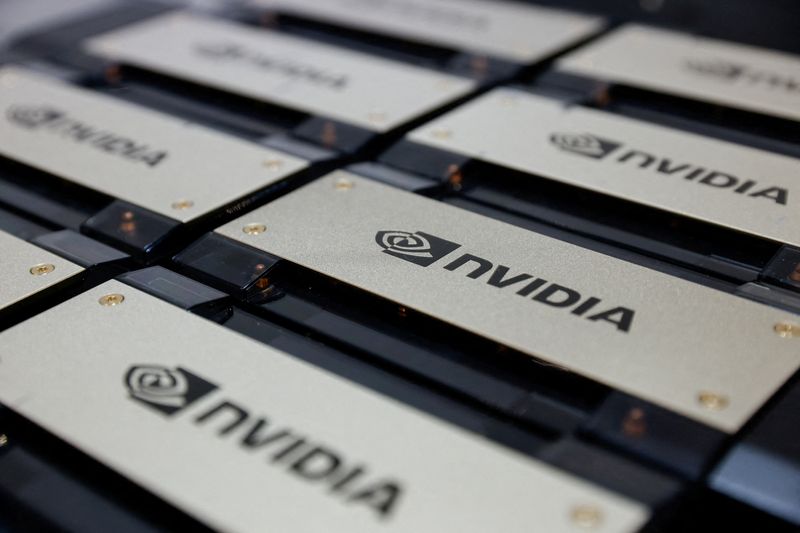On Friday, a Melius analyst maintained a Buy rating and a $160.00 price target for NVIDIA Corporation (NASDAQ:NVDA), expressing optimism despite recent challenges. The analyst highlighted that while there were initial concerns about the supply chain and customer feedback regarding NVIDIA's new Blackwell chips, including a potential three-month delay due to overheating, design, and packaging issues, the demand for Blackwell systems is expected to remain strong in the April 2025 quarter.
The report indicates that the training of large language models (LLMs) continues to be robust among major customers, even though some applications that utilize these models for inferencing are slower to roll out than anticipated. Examples of such applications include OpenAI's GPT-4o voice mode, SoraAI, and Microsoft (NASDAQ:MSFT)'s Copilot, which are taking longer to adopt.
Despite these delays, NVIDIA's sales of its H100 and H200 series chips are reportedly benefiting from intensive training efforts by companies like Meta (NASDAQ:META) for Llama 4 and OpenAI for GPT-5, as well as other well-funded laboratories. The analyst emphasized the importance of NVIDIA's technology in these training processes, suggesting that "when training is brisk - you need Nvidia."
The report also addressed the risk to NVIDIA's stock related to the company's ability to maintain quarter-over-quarter growth for the third and fourth quarters of fiscal year 2025 before the Blackwell chips are fully operational. However, the analyst noted that the market expectations seem to be less pronounced at this time.
The concept of a "Triple Lindy" scenario was introduced, which would involve NVIDIA beating its second-quarter fiscal year 2025 earnings by $2 billion, guiding an increase of $2 billion quarter-over-quarter for the third quarter, and implying another $2 billion growth for the fourth quarter.
While this outcome is deemed possible based on NVIDIA's past performance, it is not considered necessary for long-term investors. The report concluded by suggesting that if NVIDIA achieves this scenario, its earnings per share could approach $5 within 18 months, potentially leading the stock to reach the $160 price target more swiftly.
Recent developments also include Advanced Micro Devices (NASDAQ:AMD)' plans to acquire server manufacturer ZT Systems for $4.9 billion, a move expected to enhance its artificial intelligence chip and hardware offerings, enabling it to compete more effectively with NVIDIA.
Additionally, NVIDIA's earnings report, due to be released, is expected to be a bellwether for the AI sector, with analysts from various firms anticipating the company to surpass expectations. Evercore ISI, for instance, anticipates NVIDIA to achieve more than $10 in earnings per share (EPS) by 2030.
InvestingPro Insights
As NVIDIA Corporation (NASDAQ:NVDA) navigates the complexities of the semiconductor market, the latest data from InvestingPro points to some key financial metrics that investors should consider. NVIDIA's robust revenue growth over the last twelve months, reaching an impressive 208.27%, underscores the company's ability to expand its sales significantly. Additionally, the company's P/E ratio stands at a high 71.94, reflecting a premium that investors are willing to pay for NVIDIA's growth prospects and dominant position in the industry, as highlighted by one of the InvestingPro Tips.
Another critical InvestingPro Tip for NVIDIA is its perfect Piotroski Score of 9, indicating strong financial health and profitability, which may reassure investors about the company's fundamentals amidst market volatility. Moreover, NVIDIA's gross profit margin of 75.29% demonstrates its ability to maintain profitability, which is crucial for sustaining its operations and innovation. With 19 additional InvestingPro Tips available, including insights on the company's valuation multiples and stock price movements, investors can access a wealth of information to inform their investment decisions. For a deeper dive into NVIDIA's financial health and market position, visit https://www.investing.com/pro/NVDA.
This article was generated with the support of AI and reviewed by an editor. For more information see our T&C.
